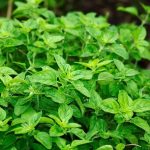Herbal Products in Nigeria: Embracing International Standards

Nigeria’s rich herbal heritage has long been recognized, but the industry’s growth has been hindered by limited standardization and quality control. However, with the increasing demand for natural products globally, there is a growing need for Nigerian herbal products to meet international standards.
Recent Advancements
- Standardization: The Nigerian government has established the National Agency for Food and Drug Administration and Control (NAFDAC) to regulate and standardize herbal products. NAFDAC ensures that herbal products meet international standards, such as Good Manufacturing Practice (GMP) and ISO certification.
- Research and Development: Universities and research institutions in Nigeria are conducting extensive research on herbal products, exploring their efficacy, safety, and potential applications. This research has led to the development of new products and improved formulations.
- Modernization of Traditional Medicine: Traditional herbalists are being trained in modern manufacturing techniques, enabling them to produce high-quality products that meet international standards.
- Export-Oriented Production: Nigerian herbal products are now being exported to countries like China, India, and the United States, promoting economic growth and recognition of Nigerian herbal products globally.
- Certification and Labeling: Products are now labeled with necessary information, such as ingredients, dosage, and warnings, ensuring consumer safety and confidence.
- GMP-Certified Facilities: Many Nigerian herbal product manufacturers have invested in GMP-certified facilities, ensuring a clean and controlled environment for production.
- Collaboration with International Organizations: Nigeria is collaborating with international organizations like the World Health Organization (WHO) and the International Organization for Standardization (ISO) to ensure compliance with global standards.
Benefits of International Standardization
- Increased Export: Standardized herbal products can be exported to more countries, boosting Nigeria’s economy.
- Improved Quality: Standardization ensures consistent quality, making Nigerian herbal products more competitive globally.
- Enhanced Credibility: Meeting international standards enhances the reputation of Nigerian herbal products, increasing consumer trust.
- Access to Global Markets: Standardization opens doors to new markets, enabling Nigerian herbal products to reach a broader audience.
Challenges and Future Directions
- Regulatory Framework: Strengthening the regulatory framework to ensure consistent enforcement of standards.
- Research and Development: Continued investment in research to explore new herbal products and improve existing ones.
- Capacity Building: Training and capacity-building programs for traditional herbalists and manufacturers to ensure sustainability.
- Marketing and Promotion: Effective marketing and promotion strategies to increase global awareness of Nigerian herbal products.
By embracing international standards, Nigeria’s herbal product industry is poised for growth, recognition, and increased global competitiveness, ultimately promoting the country’s rich herbal heritage.




